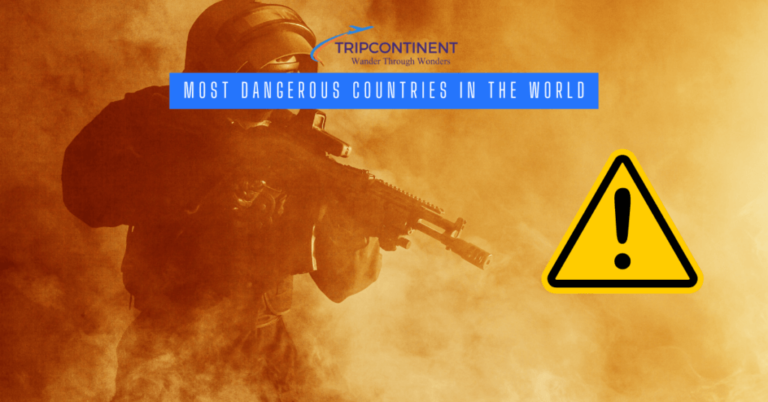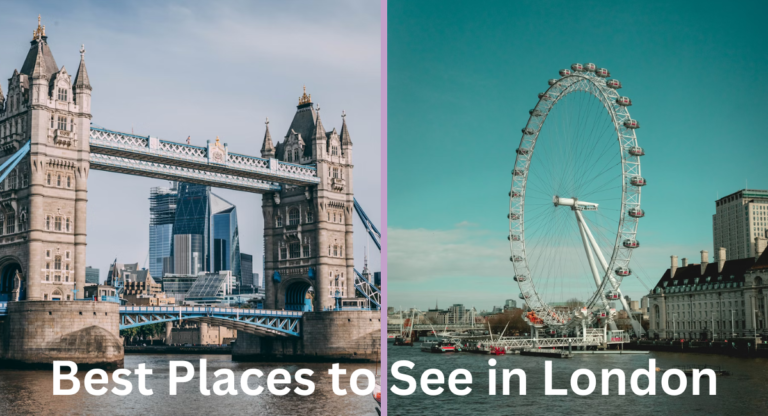A Look At The 10 Most Educated Countries In The World
Education is a fundamental right and a key driver of economic and social progress. It empowers individuals and societies to reach their full potential. Let’s explore some of the countries that consistently rank high on the list of the most educated countries in the world.
These countries prioritize quality education, invest in their educational infrastructure, and foster a culture of lifelong learning. By examining their educational systems and approaches, we can gain valuable insights that can inform and improve educational practices around the globe.
Also Read: List of Communist Countries
List Of The Most Educated Countries In The World
Here are some of the top contenders for the title of most educated countries in the world:
- Canada
- Japan
- Luxembourg
- South Korea
- Israel
- United States
- Ireland
- United Kingdom
- Australia
- Finland
1. Canada
Canada is known around the world for its excellent education system, consistently ranking high in global comparisons. This success is reflected in Canada’s impressive literacy rate, with nearly 99% of adults able to read and write. This achievement highlights Canada’s dedication to providing accessible and effective education for all its citizens.
One of the key measures of Canada’s educational strength is the growing number of people with college or university degrees. In just a few years, from 2018 to 2022, the percentage of Canadians with post-secondary qualifications jumped from 56% to almost 60%. This significant rise demonstrates the effectiveness of Canada’s educational policies and the importance Canadians place on higher learning.
Early education in Canada plays a vital role. Kindergarten programs are free and mandatory, ensuring all children have a strong foundation from the very beginning of their academic journey. While university or college isn’t compulsory, the Canadian government actively supports students financially through grants and loans. This financial aid makes higher education more attainable, allowing more students to pursue their goals without being limited by financial constraints.
Canada boasts some of the world’s top universities, with institutions like the University of Toronto and McGill University consistently ranking among the best. These universities are recognized for their rigorous academic programs, significant research contributions, and outstanding global reputation. In addition to these prestigious universities, Canada offers a wide range of vocational schools that provide students with practical skills and training after high school, catering to a variety of career paths and industries.
Canada’s education system is designed with inclusivity and adaptability in mind, recognizing the needs of its diverse population.
2. Japan
Japan is admired worldwide for its exceptional education system, which has been a driving force behind the country’s economic and technological achievements. Since the 1800s, Japan has adopted a Western-style education system with elementary, secondary, and university levels. This structure provides a well-rounded and thorough academic experience for students.
Japan boasts an incredibly high literacy rate, with nearly everyone able to read and write. This remarkable achievement reflects the country’s commitment to education and the effectiveness of its teaching methods. Students in Japan are known for their dedication to academics, often putting in significant effort to prepare for university entrance exams. This intense preparation highlights the high value placed on higher education in Japanese society.
For many Japanese students, university is the ultimate goal. Public universities generally hold a higher status than private ones, reflecting their reputation for quality and prestige. Institutions like the University of Tokyo and Kyoto University are shining examples, ranking among the world’s best. These universities are recognized for their academic excellence, research contributions, and international standing.
An interesting trend exists in course selection – boys often gravitate towards science and engineering, while girls tend to choose humanities and social sciences. This reflects the broader cultural influences that shape educational choices in Japan.
Discipline, respect, and hard work are fundamental values in Japanese culture, and these are strongly emphasized within the education system. The curriculum is designed to be rigorous and comprehensive, ensuring students are well-prepared in a variety of subjects. Additionally, vocational training and technical education are prioritized, equipping students with practical skills that contribute to Japan’s highly skilled workforce.
In conclusion, Japan’s education system, with its near-universal literacy rate and world-class universities, demonstrates the country’s dedication to building an educated and capable population.
Also read: Richest Countries In Asia
3. Luxembourg
Luxembourg takes great pride in its well-developed education system, which plays a key role in making it a highly educated country. Children in Luxembourg receive a strong foundation through elementary education, which lasts until they are eleven years old. This sets them up for success in their future academic and personal lives.
After elementary school, students have a choice. They can pursue a more traditional academic path at a “Lycée secondaire,” or they can focus on vocational training at a “Lycée technique.” This flexible system allows students to follow their interests and career goals. No matter which path they choose, mandatory education continues until year nine. After that, students can choose to continue for an additional four years to earn a qualification degree.
A major milestone for Luxembourg’s education system was the establishment of the University of Luxembourg in 2003. Before then, many students went abroad for higher education. Now, the university offers a wide range of programs and attracts students and faculty from all over the world. This has quickly made it a center of excellence and research, boosting Luxembourg’s educational profile.
Luxembourg’s commitment to education shows in its impressive literacy rate, which is nearly 100%. This achievement reflects the effectiveness of the educational system and the importance placed on learning. What’s even more remarkable is Luxembourg’s jump in the OECD’s rankings of the most educated countries. In just four years, the country moved from tenth place to third. This is a clear sign of the ongoing improvements and investments in education, ensuring high-quality learning for all citizens.
One of the strengths of Luxembourg’s system is its focus on inclusivity. It caters to a diverse student population and equips them with the skills and knowledge needed for the modern world. The system doesn’t just focus on traditional academics – it also prioritizes vocational training. This ensures that students are not only well-rounded academically, but also practically skilled. This combination helps create a capable workforce that can contribute to Luxembourg’s continued success.
By strategically focusing on education, Luxembourg has established itself as a leader on the global stage.
4. South Korea
South Korea consistently ranks among the world’s most educated countries, placing fourth in the OECD’s standings. This impressive achievement is largely because half of South Korea’s population holds a university degree or higher qualification, reflecting the country’s deep respect for academic excellence.
Education is highly valued in South Korean culture, with this emphasis starting at a young age. Parents are heavily invested in their children’s academic success, encouraging them to excel throughout middle and high school. Many families choose to supplement their children’s education with private tutoring academies, known as “hagwons.” These widespread institutions play a significant role in preparing students for the demanding university entrance exams.
The pursuit of higher education is seen as a path to a secure future and well-paying jobs, motivating students to perform at their best academically. This intense focus on education results in a high number of South Koreans achieving tertiary-level degrees and a near-perfect national literacy rate.
South Korea boasts several world-class universities, with Seoul National University ranking among the top 40 globally. This prestigious institution, alongside others like Korea University and Yonsei University, offers exceptional education and research opportunities, attracting students from all over the country. However, some South Korean students choose to pursue their university studies abroad, seeking diverse experiences and a broader international perspective.
The South Korean education system is known for its rigor and competitiveness. Students often face considerable pressure to succeed academically, leading to long hours of study and a highly disciplined lifestyle. Despite these challenges, the system produces impressive results: a highly educated population with a strong foundation in both theoretical knowledge and practical skills.
The nation’s investment in its educational infrastructure, combined with the dedication of students and parents, ensures continued success in academic achievement.
5. Israel
Education has been a cornerstone of Israeli society for centuries. This focus can be traced back to medieval times in Europe when restrictions on Jewish professions led them to fields like medicine, law, and business – all requiring strong educational foundations. This historical emphasis on learning continues to thrive in modern Israel.
Schooling is mandatory for the first twelve years, ensuring all children receive a solid academic base. This commitment shows in Israel’s impressive literacy rate, with nearly everyone able to read and write. The education system itself is designed to nurture critical thinking and innovation, skills essential for Israel’s thriving science and technology economy.
Parents in Israel play a vital role in this educational journey. They highly value academic achievement and often encourage their children to excel in math and science, subjects crucial for the nation’s economic and technological advancement. As a result, many Israeli students pursue these subjects at university, preparing for careers in engineering, computer science, medicine, and other high-tech industries.
Israel’s dedication to higher education is evident – more than half of its adults hold a university degree. This impressive statistic reflects the country’s commitment to building a highly educated workforce capable of driving innovation and economic progress. Israel boasts world-renowned universities like the Hebrew University of Jerusalem, Tel Aviv University, and the Technion – Israel Institute of Technology, all known for their cutting-edge research and academic excellence.
Israel’s focus on education has deep historical roots and remains a pillar of its modern society.
6. United States
The United States is a global leader in education, especially when it comes to higher learning. American universities are highly respected worldwide, with five of the top ten universities according to QS World University Rankings being in the US. The Massachusetts Institute of Technology (MIT) takes the lead, renowned for its groundbreaking research and academic excellence.
Across the country, each state offers a vast array of educational options. Public and private universities and colleges cater to a wide range of interests, both academic and professional. This widespread availability makes higher education accessible to many, attracting international students who seek to elevate their futures through studies in the US.
The US boasts an impressive literacy rate, with nearly everyone able to read and write. This reflects the nation’s commitment to foundational education, ensuring almost all citizens possess essential literacy skills. However, while the US enjoys some of the world’s best universities and a generally high level of education, there are significant challenges related to race and income that impact educational outcomes.
Unequal access to higher education remains a pressing issue. Students from lower-income families and those from marginalized racial groups often face substantial roadblocks in entering and completing university studies. These barriers can include financial limitations, lack of access to quality preparatory education, and a scarcity of supportive resources. As a consequence, some students may be discouraged from pursuing higher education altogether or may be forced to drop out before graduation.
Despite these challenges, the US remains a hub for academic excellence and innovation.
Also read: Most Rich States in the USA
7. Ireland
Ireland has a well-deserved reputation for placing a high value on education. This is reflected in the country’s impressive literacy rate and the high level of educational attainment among its citizens. Education in Ireland is mandatory and free for children, ensuring a strong foundation for all. This commitment to accessible education continues through secondary school, after which students can choose to pursue university or other forms of higher education.
Ireland boasts a strong university system with seven state universities. Five of these universities are ranked among the top 100 in the world! The government’s “Free Fees Scheme” makes university education highly accessible for Irish and EU students, as there are no tuition fees for these groups. This policy has significantly contributed to Ireland having the highest proportion of university graduates in the European Union.
A recent OECD report shows that nearly half of Ireland’s adult population has a post-secondary qualification. This impressive statistic highlights the country’s focus on creating a highly educated population. The education system itself is designed to promote lifelong learning and equip students with the skills they need to thrive in today’s rapidly changing world.
Ireland’s education system is known for its inclusivity and high quality. The country’s universities are recognized for their strong academic programs, research contributions, and vibrant student life. Institutions like Trinity College Dublin and University College Dublin are world-renowned for their excellence in various fields, attracting students from across the globe.
The government’s support for education goes beyond just free tuition. They also offer various grants and scholarships to help students from diverse backgrounds access higher education. This financial support system ensures that financial limitations don’t prevent students from pursuing their academic goals.
Explore more: Safest Countries in the World
8. United Kingdom
The United Kingdom boasts a long and respected tradition of education, reflected in its impressive literacy rate of nearly 99%. This commitment to quality education ensures nearly everyone has the opportunity to learn and grow. The UK’s rich academic history is still alive today, with four of its prestigious universities – Oxford, Cambridge, Imperial College London, and University College London – ranking among the world’s top ten. These institutions are renowned for their challenging academics and cutting-edge research.
Education in the UK follows a clear path. Schooling is mandatory until the age of 18. After completing their GCSEs (general secondary education qualifications), students typically pursue A-Levels (Advanced Levels) to prepare for university admissions. At 18, students can choose between a three-year Bachelor’s degree at a university or vocational training at colleges, which provide practical skills and career-specific knowledge.
Looking beyond traditional university degrees, the UK also offers unique two-year foundation degrees that combine academic learning with vocational training. These programs are designed to equip students with both theoretical knowledge and practical skills, making them adaptable to various career paths. This focus on practical skills alongside academics is a strength of the UK education system.
The UK’s high-quality education and world-renowned universities make it a magnet for international students. This influx of students from around the world enriches the cultural and intellectual environment at UK institutions, fostering a vibrant and diverse academic community.
Despite its strengths, the UK’s ranking in education has slipped slightly in recent years, dropping from fifth to eighth on the OECD’s most educated countries list. This shift highlights ongoing challenges, such as unequal access to higher education and the need to adapt to the ever-changing demands of the world. However, the UK remains dedicated to education, with ongoing efforts to support students from diverse backgrounds and improve the quality of education at all levels.
9. Australia
Australia is a shining example of a highly educated nation, boasting a near-perfect literacy rate of 99% and a well-structured education system. This system caters to a wide range of interests and goals, ensuring students have the pathways they need to succeed.
After high school, Australian students can choose their adventure. For those seeking to enter the workforce with specialized skills, Vocational Education and Training (VET) provides a practical route. Through a series of certifications, students gain valuable hands-on experience and knowledge, culminating in a diploma that qualifies them for specific careers.
The other main path is university. Australia’s universities, mostly public institutions, offer a vast array of undergraduate and postgraduate programs, allowing students to delve deeper into academic pursuits.
The government’s Study Assist program makes universities more accessible by working like a student loan. Students can defer the cost of their education until they reach a certain income level, reducing financial barriers and opening doors for more students to chase their academic dreams.
Australia’s high-quality education and vibrant campuses also draw international students, enriching the learning environment with a multicultural perspective. The country’s universities are well-respected for their research and teaching, further solidifying Australia’s position as a leader in global education.
The Australian government is constantly investing in education, with a particular focus on science, technology, engineering, and mathematics (STEM) fields. They are especially committed to encouraging more women to pursue STEM careers, aiming to address gender imbalances and foster diversity in these crucial areas. This initiative highlights Australia’s forward-thinking approach to education and its dedication to preparing students for the ever-changing needs of the job market.
You might also like: Most Dangerous Cities in the USA
10. Finland
Finland consistently ranks among the world’s most educated countries, and for good reason. Their approach to education is innovative and places students at the center of the learning experience. Finland boasts a near-perfect literacy rate, highlighting their commitment to quality education from a young age. However, unlike many countries, Finnish children don’t begin formal schooling until age seven. This delay allows them more time for play, exploration, and social development before entering a structured academic environment.
One of the things that sets Finland apart is its lack of standardized testing. Instead of high-pressure exams, Finnish students are evaluated continuously by their teachers. This method provides a more well-rounded picture of student progress and fosters a supportive learning environment that prioritizes individual growth over competition.
The university admissions process is also refreshingly straightforward in Finland. Students take just one Matriculation exam to apply, ensuring a fair and equal opportunity for all. Furthermore, vocational training is highly respected and seen as a valuable option for students who don’t choose a university path. This focus ensures students are prepared for a variety of careers and contributes to Finland’s highly skilled workforce.
Perhaps the most remarkable aspect of Finnish education is that universities are free of tuition. This allows students to pursue higher learning without the burden of financial constraints. Finnish universities also offer flexibility – students can design their degrees by choosing courses and exams that align with their interests and career goals.
The following table provides a streamlined overview of the most educated countries, their literacy rates, key education features, and notable universities.
| Country | Literacy Rate | Key Education Features | Notable Universities |
| Canada | ~99% | Free and mandatory early education; financial support for tertiary education; significant rise in post-secondary qualifications (56% in 2018 to 60% in 2022) | University of Toronto, McGill University |
| Japan | ~99% | Rigorous academic preparation for university; high value placed on higher education; emphasis on science and engineering for boys, humanities for girls; highly respected public universities | University of Tokyo, Kyoto University |
| Luxembourg | ~100% | Strong foundation in elementary education; choice between academic and vocational secondary education; established the University of Luxembourg in 2003 | University of Luxembourg |
| South Korea | ~100% | High emphasis on academic success and university entrance exams; significant private tutoring culture; high proportion of population with tertiary-level education | Seoul National University |
| Israel | ~100% | Mandatory education for the first twelve years; strong focus on STEM fields; over half the adult population holds a university degree | Hebrew University of Jerusalem, Tel Aviv University, Technion |
| United States | ~99% | Extensive options for higher education; top global universities; significant challenges related to race and income affecting access to higher education | MIT, Harvard University, Stanford University |
| Ireland | ~100% | Free and mandatory education for children; high university graduate rate; seven state universities with strong global rankings; Free Fees Scheme for local and EU students | Trinity College Dublin, University College Dublin |
| United Kingdom | ~99% | Mandatory education until age 18; options for academic and vocational paths; prestigious universities in the top global rankings | Oxford University, Cambridge University, Imperial College London |
| Australia | ~99% | Vocational Education and Training (VET) options; Study Assist program for higher education; significant focus on attracting international students and promoting STEM fields | Australian National University, University of Melbourne |
| Finland | ~100% | Start school at age seven; no standardized tests; free university education; students design their own degrees; vocational training highly respected | University of Helsinki, Aalto University |
Conclusion
In conclusion, our exploration of the Most Educated Countries in the World has revealed a wealth of diverse and effective approaches to learning. From South Korea’s emphasis on academic excellence to Finland’s focus on student-centered learning, each nation offers valuable lessons.
By learning from these examples and adapting them to their unique contexts, other nations can strive to create educational systems that empower their citizens and fuel future progress.
Ultimately, the pursuit of a world where everyone has access to quality education remains a vital endeavor. By investing in education, we invest in the potential of individuals and societies to thrive and create a brighter future for all.
FAQs
What Is the Lowest Educated Country in the World?
Several countries consistently rank low in terms of literacy rates and educational attainment according to organizations like the UNESCO Institute for Statistics. Here are some countries that often appear at the bottom of these lists:
- South Sudan
- Central African Republic
- Niger
- Mali
- Chad
Which Country Has the Hardest Education?
South Korea, Finland, America, and Russia have some of the world’s toughest education systems.
Which Is the Best Country for Living?
Norway, Australia, and the Netherlands. These countries boast high living standards, strong economies, and a healthy work-life balance. To top it off, they offer robust social security systems and inclusive, diverse work environments.
Which Country Is Best for Education and Jobs?
The United States, Canada, and Germany are consistently ranked under the title of Best for education and jobs.
Which Country Is Best for Mathematics?
Singapore, South Korea, and Finland are considered to be the best countries to study mathematics. Each country has a unique approach.

I’m Sophia Jones, an adventurer at heart from New York City, USA. I live for travel and exploration, always eager to discover new places, meet fascinating people, and try out diverse cuisines. Over the past few years, I’ve traveled to numerous countries, immersing myself in different cultures and creating unforgettable memories.






